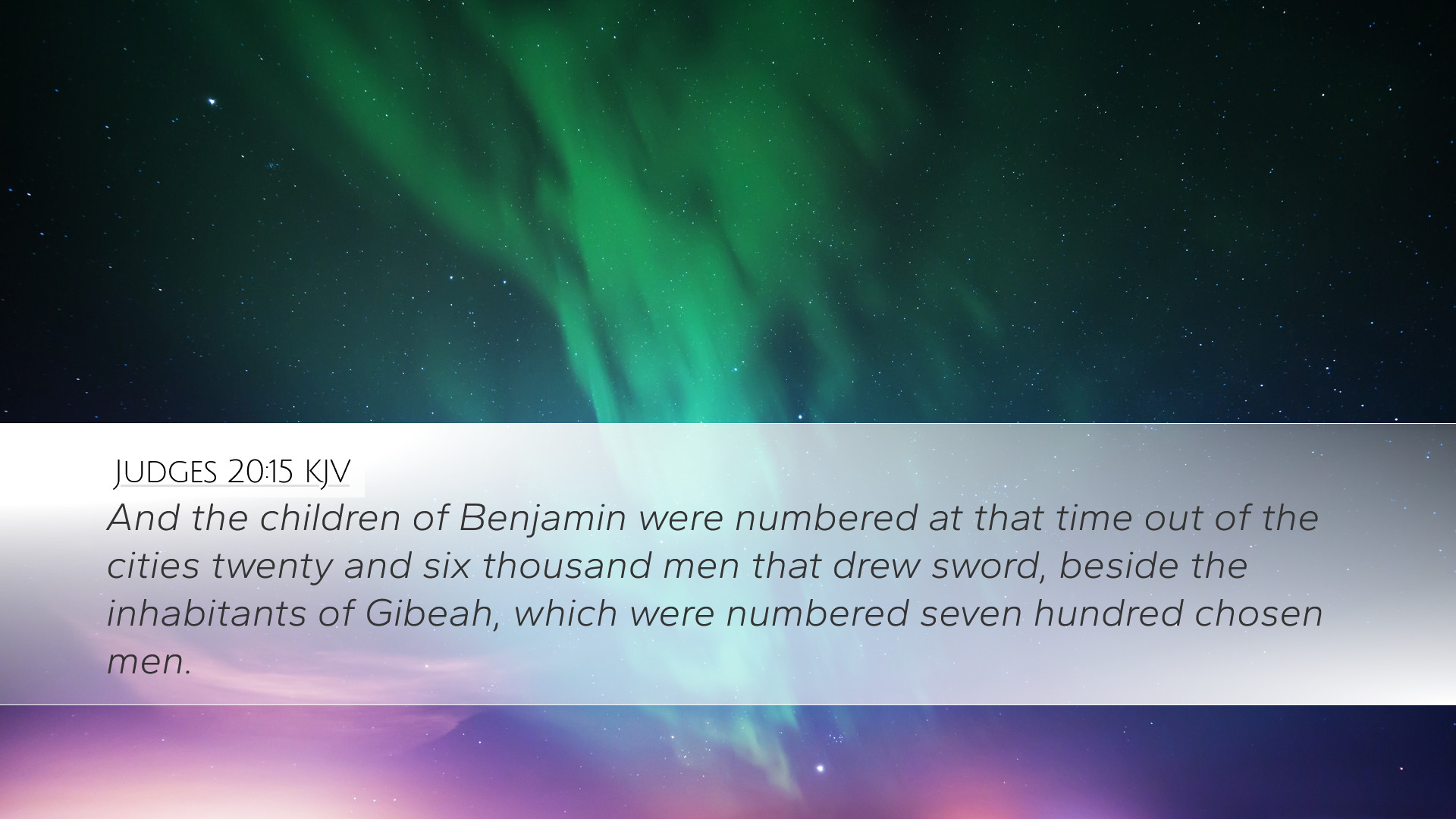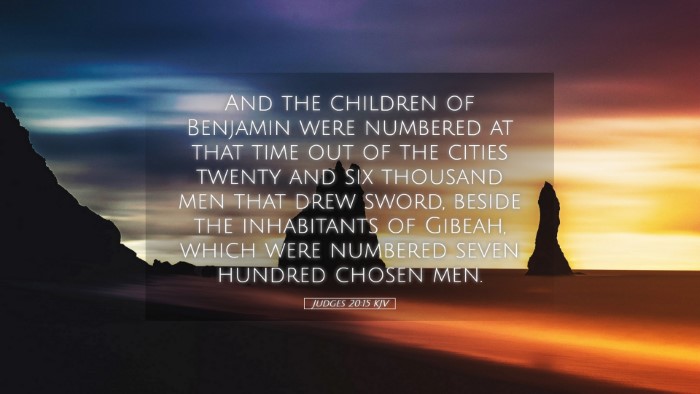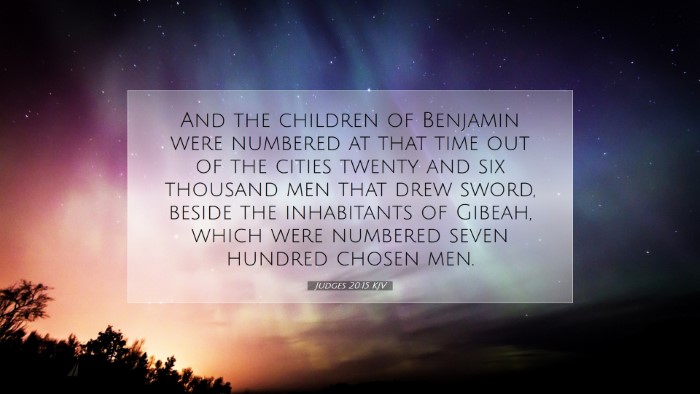Judges 20:15 - "And the people of Benjamin were numbered at that time out of the cities twenty and six thousand men that drew sword, besides the inhabitants of Gibeah, which were numbered seven hundred chosen men."
This verse captures a crucial moment in the historical backdrop of the Book of Judges, wherein the tribe of Benjamin is prepared for battle against the collective forces of Israel. The specifics of the verse open avenues for rich theological reflection and exegesis, drawing from classic commentaries.
Background Context
The narrative in Judges recounts a tumultuous period in Israel's history, characterized by a moral and societal decline after the death of Joshua. The injustices in Gibeah, particularly the horrific crime against the Levite’s concubine, catalyzed a national crisis leading to war. This backdrop frames the events captured in Judges 20:15.
Commentary Insights
Matthew Henry's Perspective
Matthew Henry emphasizes the gravity of the moment where Israel must confront its own brothers in Benjamin. His commentary underlines the moral decay pervasive in Israel, which necessitates this confrontation. Henry notes:
- Divine Judgment: The civil war speaks to God’s judgment upon Israel for its sinfulness.
- Tragic Civil Conflict: The civil strife indicates the dire implications of the sin not only for individuals but for the entire community.
- Number of Men: The precise numbering of the Benjamite warriors draws attention to the seriousness with which Israel approached this conflict, framing it within a calculated military strategy.
Henry reflects on how the number signifies strength and implies that despite their diminutive size compared to the rest of Israel, they are formidable opponents. This prompts a consideration of human reckoning versus divine sovereignty.
Albert Barnes' Analysis
Albert Barnes provides a more historical and numerical evaluation of the tribes involved, digging into lineage and tribal strength. He points out:
- Population Dynamics: Barnes highlights the distinct numbers from Gibeah and the broader tribe of Benjamin, indicating the concentrated military prowess.
- Israel's Approach to War: The distinction in numbers signals a meticulous approach by Israel, illustrating the organized manner in which they prepared for conflict, and underscores the importance of unity of purpose in communal decision-making.
- The Role of Select Fighters: The 'chosen men' are indicative of the elite fighting force, reflective of a strategic military setup akin to doctrinal teachings where the best of the best are called to stand in the gap.
Barnes draws attention to the implications of civil strife among the people of God, cautioning against the fracturing of community unity, which can lead to disastrous consequences.
Adam Clarke's Exegesis
Adam Clarke’s commentary delves into a detailed analysis of the nature of the conflict. He perceives it as a microcosm of larger spiritual battles:
- Chosen Men as Leaders: Clarke points out the significance of the 'seven hundred chosen men,' correlating their valor with spiritual leaders among believers.
- Symbolism of Numbers: The numerical mention implies characteristics of strength and resilience; Clarke presents this as a reflection of God’s selective empowerment of certain individuals to fulfill His purposes.
- Moral Lessons: He suggests that this conflict symbolizes the internal battles believers face against sin within their own ranks.
Clarke urges a reflective attitude, contemplating the ethical ramifications of inter-tribal conflict and its implications for the Church today.
Theological Reflections
Combining insights from these esteemed commentators leads us to profound reflections on several key themes within Judges 20:15:
- Unity and Division: The necessity of unity among the tribes of Israel highlights God's design for communal integrity, as divisions within the body can lead to catastrophic results.
- Sin and Consequences: The narrative warns of the persistent nature of sin and the resulting need for accountability and divine justice.
- The Sovereignty of God: As numbers are counted and strategies plotted, it remains clear that outcomes are ultimately subject to God’s overarching plan.
Application for Today
For pastors, students, and theologians, Judges 20:15 serves as a serious warning against internal conflicts within the Church and underlines the importance of confronting sin corporately. The commentary asserts that as believers, there is an imperative to maintain unity and work towards reconciliation rather than allowing discord to breed factions.
Furthermore, this passage invites reflection on leadership within the community. Those chosen are symbolic of those called to lead in faith, embodying both strength in moral character and courage to stand for righteousness amidst adversity.
In this charge to introspectively engage with communal narratives, it is essential to pray for wisdom, seek divine guidance, and foster relationships that uphold the integrity of the body of Christ.


